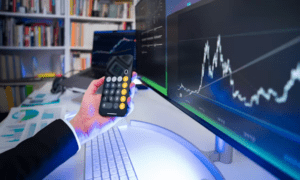At WB Trading, we often get asked questions about the differences between forex (foreign exchange) and other currencies. While there are many similarities between the two, there are also some key differences that traders should be aware of.
When it comes to trading currencies, there are a lot of different options out there. But what exactly is forex trading, and how does it differ from other types of currency trading?
Here are ten key differences between forex and other currencies that every trader should know.
1. The foreign exchange market is the biggest in the world
The foreign exchange market, or “forex,” is the largest financial market in the world. It’s made up of a global network of banks, traders, and investors who trade currencies 24 hours a day, five days a week.
2. You can trade forex online or through a broker
If you’re interested in trading forex, you can do so online through a brokerage account or through a bank account. However, it’s important to note that not all banks offer this service. In addition, online brokerages typically offer lower fees and commissions than traditional brokerages.
3. There are two types of currency pairs: majors and minors
Currency pairs are divided into two categories: major pairs and minor pairs. Major pairs are the most traded currency pairs in the world and include the US dollar, the euro, the British pound, the Japanese yen, and the Swiss franc. Minor pairs are less traded and typically involve one major currency paired with a less traded currency, such as the Australian dollar or the Canadian dollar.
4. Currency values fluctuate based on economic indicators
Currency values are constantly changing based on a variety of economic indicators, including interest rates, inflation rates, government debt levels, and trade deficits/surpluses. These factors can all directly impact currency values and should be monitored closely by traders.
5. You can make money by betting on rising or falling currency values.
Traders make money by betting on whether a currency will increase or decrease in value relative to another currency. If your bet turns out to be correct, you will make money; if it does not, you will lose money. It’s important to remember that forex trading is a speculative activity and that there is always risk involved.
6 . You need to use leverage when trading forex.
Leverage allows you to control more money than you actually have in your account. This will enable you to make bigger bets than you could without leverage and amplifies your potential losses. As such, it’s important to use leverage responsibly and only with money that you can afford to lose.
7 . Margin calls are common in forex trading.
A margin call occurs when your account balance falls below the required minimum amount needed to maintain your position. At this point, your broker will require you to deposit more money into your account or close out your position. Margin calls are common in forex trading and can lead to substantial losses if not managed properly.
8. Fundamental vs. Technical Analysis
In forex trading, both fundamental and technical analysis are used to make decisions about trades. Fundamental analysis looks at factors such as economic indicators, political stability, etc. Technical analysis looks at past price data to identify patterns that can be used to predict future prices.
9. Choice of Broker
When choosing a broker for forex trading, it’s important to choose one that is regulated by a reputable authority, such as the US Commodity Futures Trading Commission (CFTC) or the National Futures Association (NFA).
10. Volatility
Forex markets are much more volatile than other currency markets due to the leverage used by traders. This can lead to big profits but also big losses if a trade goes against the trader.
Final Thoughts
Forex trading is a speculative activity involving buying and selling currencies to profit from changes in exchange rates. It is the largest financial market in the world and offers traders many benefits, including 24-hour trading, high liquidity, and low transaction costs. However, it also comes with risks, including leverage risks, margin call risks, and the potential for substantial losses. Before beginning to trade forex, be sure that you understand these risks and know how to manage them properly.



































